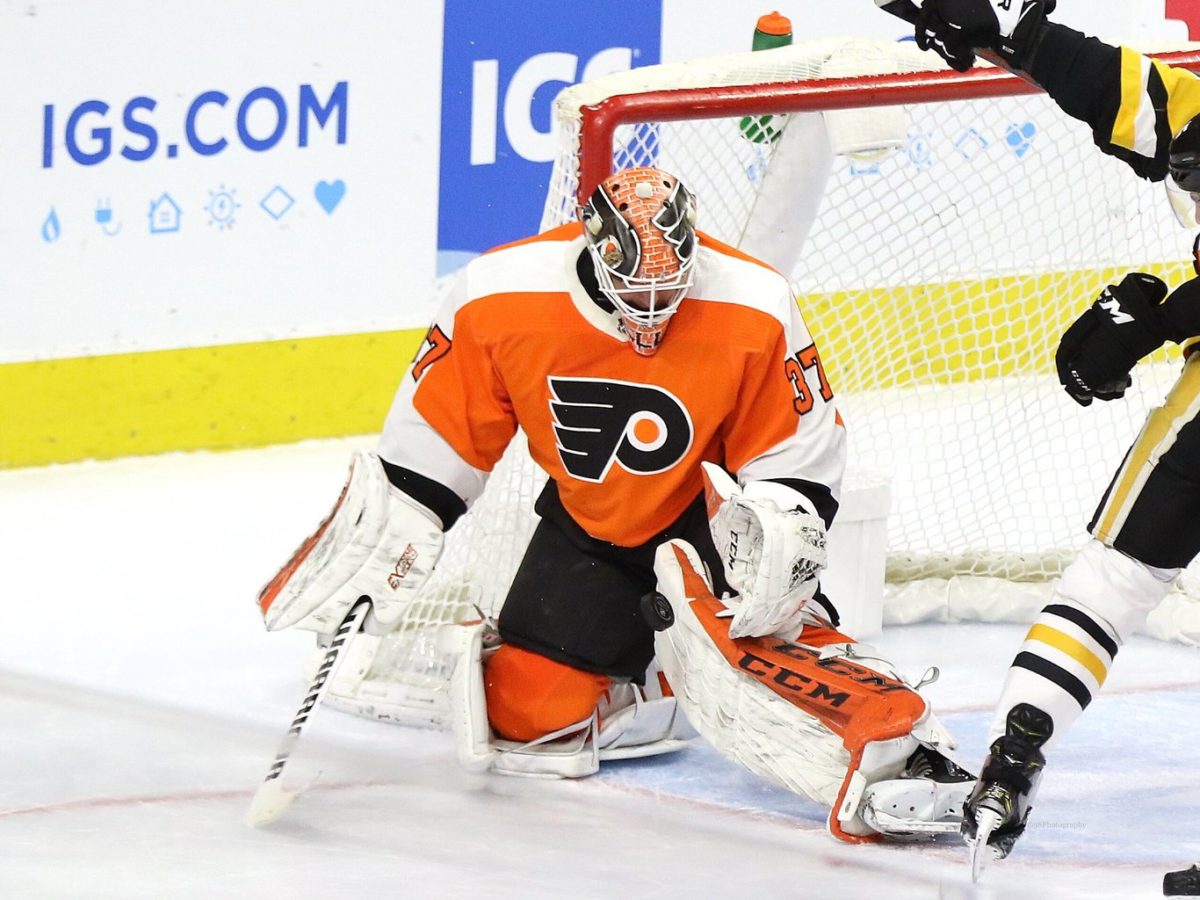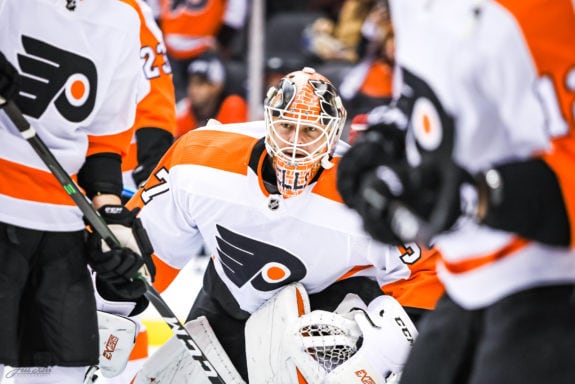Brian Elliott has been a good backup goaltender and has taken that role over the last three seasons. In 2020-21, the Philadelphia Flyers asked him to take on a bigger role with the struggles of starting goaltender Carter Hart throughout the season. Elliott, who turned 36 in April, is not a starting goaltender at this point in his career. He signed with Philadelphia in the summer of 2017 and played 43 games during the 2017-18 season.
The Flyers struggled throughout many position groups in the 2020-21 season. Hart had a difficult season as he was pulled during multiple games, was benched and suffered a sprained MCL toward the conclusion of the regular season. He was clearly affected mentally from his poor play, and head coach Alain Vigneault decided to deactivate him for some games during the season and entrusted Elliott with the role of starting goaltender. Elliott had some good games on occasion but floundered at times this season for the orange and black.
Elliott Stumbles in Net
Elliott did not appear to be as comfortable in goal for the Flyers, as the team was disappointing defensively. Philadelphia needed to ask more of him due to the truncated 2020-21 season.
A COVID-19 outbreak back in February shut down the Flyers‘ season, which disrupted the chemistry the players were attempting to generate throughout the year. They had 11 days between their last game on Feb. 7 and the first game back from the stoppage on Feb. 18. The Flyers began to struggle in March when they played 17 games in 31 days, where Elliott played in 11 of the 17 games and allowed three or more goals in eight of the 11 games in which he participated.

The inadequate play from the defense and goaltending led to the abysmal positioning Philadelphia finished in a few statistical categories. The team finished last in the NHL with 3.52 goals allowed per game and was 30th in penalty killing percentage at 73.05%, which is evidence for why the franchise did not have a good season. Elliott started in 26 of the 30 games he played and ended with an underwhelming save percentage of .889%. He allowed 82 goals and had a 3.06 GAA.
The COVID-19 outbreak made the Flyers season more tumultuous as the team could not break out of the funk all season long. Enduring an unexpected halt in February to the shortened season and having to make up the postponed games over a short span of time is asking a lot of a player like Elliott at this point in his career.
What Is Next for Elliott?
He is an unrestricted free agent for the Flyers this offseason. He has been with Philadelphia for four years, and it may be time for general manager Chuck Fletcher to consider another player as the backup goaltender for the orange and black. The Flyers have other options to consider for the backup goalie spot in free agency. Elliott’s experience has been beneficial as a reserve for a young player like Hart, but Philadelphia is not an elite team and Elliott could decide to sign with a premier team as the backup goalie for a chance to compete for a Stanley Cup next season.

Fletcher knows what he will be getting from Elliott if he decides to re-sign again as a backup goaltender. Hart, a restricted free agent, will most likely have a new contract and return as the starting goaltender, so the organization will need to factor in Hart’s new contract during the offseason.
Fletcher has to determine if Elliott’s performance this season is worthy of another year as a member of the Flyers. The performances by Elliott against below-average teams such as against the Buffalo Sabres in March and the New Jersey Devils in April are examples of why it may be time for Philadelphia to move in a different direction at the position. Providing stability at the backup goaltending position is one of several priorities for Fletcher to address during the offseason because the poor goaltending was a factor in the uninspiring season from the organization.